MP chatted with Paul Tyler, Chief Marketing Officer for Nassau, leading the marketing strategy, direct-to-consumer channel, and innovation activity. Tyler drives the branding of insurance companies and affiliated asset management companies. He built a direct-to-consumer channel for Nassau Financial Group. In addition, Tyler launched Nassau Re/Imagine, an Insurtech-focused incubator based in Hartford. Before his role at Nassau Financial Group, Tyler worked at other insurance companies in various roles in strategy, marketing, operations, technology, sales, and compliance. He earned his A.B. from Princeton University and his J.D. from Cornell Law School.
Personal Finance Generally
What is financial literacy, why do so many people struggle with it, and how can we become more financially literate?
I’d first start with what financial literacy is not.
It’s not receiving a passing grade on a finance exam.
It’s not having a large bank account.
It’s not staying current with market news.
Achieving financial literacy means that you 1) are both aware of and shape your financial habits, 2) make smart decisions with your money, and 3) allocate your savings in a manner that leads to long-term financial stability.
How can we manage our money more confidently, and what would this look like in practice?
Start with innovative, small steps.
Many studies have proven that significant behavior changes start when a person makes small changes consistently over time.
For instance, people who weigh themselves daily tend to be more successful in managing their health. A similar easy financial step is simply setting the same time each week to review your account balances and weekly charges.
Once every three months, take a look at your retirement plan balance.
Simply creating awareness will start to have a very positive effect on your outlook and behavior.
How does our health affect our wealth, and what can we do to ensure we’re on track to a prosperous future?
Health, wealth, and happiness are connected at the hip.
Studies have proven that credit scores correlate with life expectancy.
Does one directly impact the other? I’ll leave that for future scientists. However, it intuitively makes sense that someone who pays their bills on time has less stress than someone who doesn’t. That person probably also gets regular checkups with the doctor. The person probably also exercises moderately every week.
Start building some order in your life today!
Budgeting and Saving
What three out-of-the-box strategies can you share to help us improve our personal budgeting, and why these three?
Turn savings into a game. Good rewards can quickly change behavior.
1. “Round Up”
The first game is to save your change simply.
Roll up each transaction to the nearest dollar and transfer the change to your savings account. You will be surprised how fast your savings grow. Many banks have automated programs that make this easy to do.
2. “Put a Prize on the Table”
The second is to create a set of personal rewards for saving a certain amount of money each month.
These could range from going to a special restaurant to getting the headphones you always wanted. You must carefully consider what savings targets make sense and what you can reasonably achieve.
3. “You Really Did Save…”
If those aren’t enough, try the “receipt game.”
Every time you get a receipt from a store or pharmacy, you usually have an amount the store claims you saved.
Make it real.
Transfer that amount from your checking into your savings account.
What strategies should we use to save more, and why might these be the most effective?
The most successful long-term savings plan is to spend less than you earn. Spending is the only lever that’s really under our full control.
If you carefully control your expenses, your savings account will grow. This means challenging a lot of your monthly expenses that may not really be essential.
What should we look for in a bank account, how might this change be based on our financial situation, and why?
Never leave your money and forget it.
Figuring out the best bank account does depend on the stage of your financial journey. If you are just starting, you should pay close attention to fees and minimum deposit requirements. Great savings habits can be crushed if high fees wipe away the results.
Also, pick a bank with one of the free, automated savings programs that will grow your account balances. Later in life, as your balance grows, you will want to pay close attention to the yields you earn and the ability to link the account to a low-cost brokerage account easily.
Handling Debt
What steps should we take to reduce our current debts, and why?
The first step is to figure out how to get your effective interest rate as low as possible. Credit card debt is the most expensive. Generally, a home equity loan is one of the cheapest. Consolidate the debt on the most favorable terms possible. You may be able to get all debt moved to a card with a low A.P.R. If you are lucky, you may be able to pay off the credit card with a home equity loan. Once you have done this, start paying it off as fast as possible. You will likely need to change your spending habits. However, if you don’t, the long-term consequences can be destructive.
What are some commonly made debt reduction mistakes, and how can these mistakes be avoided?
My biggest mistake is people paying off the wrong bills first. The financial firm with the most effective collection process may not be the first to pay if the total interest is the lowest. Prioritize paying off the bills with the biggest drag first.
Investing
What three out-of-the-box tips can you share to help us better approach personal investing, and why these three?
Even in a rapidly changing world, some basic investment principles remain constant.
1. Don’t try to time the market
Keep investing consistently in the market through your 401(k) or a brokerage account.
2. Allocate your assets to sectors, not stocks
Over time, how much of your money is in stocks v. bonds will matter much more than whether you properly timed your investment in Tesla.
3. Don’t overreact to market events
Ignore the ups and downs and keep your money hard at work where it should be kept.
What are smart places to park cash, and why?
Before retirement, keep your savings in a smart mix of high-yielding savings and bank CDs.
As you near retirement, explore the benefits of allocating some to fixed annuities that will create tax-deferred accumulation and higher interest rates over a 3- to 7-year period.
Should investments into VC funds be included in one’s portfolio?
Don’t even consider putting money in a VC fund until you max out your traditional retirement savings.
And even at that point, be cautious.
You will see portfolio recommendations ranging from 1-2% to 10-20% in alternatives.
Remember that venture capital funds tend to be less liquid than most alternatives.
While the return may be high, the time horizon to realize that result maybe 5 to 10 years.
Insurance
What types of insurance should we consider being covered by, and why?
Life and business events drive your insurance needs.
Insurance is an asset that should match a liability on our balance sheet. Life events create liabilities.
For instance, when you rent an apartment, you need insurance to protect your property and protect you from getting sued by other tenants for the damage caused by your leaky faucet.
If you have kids, you need insurance to pay for their care if something terrible happens to you.
When you buy a house, you’ll need homeowners’ insurance.
If you start a business with a partner, you’ll need insurance to cover expenses if something happens to one of you.
When you get closer to retirement, you should consider protecting some of your savings from an ill-timed market downturn with an annuity.
Other
Everyone should take their financial security into their own hands.
Educate yourself and your loved ones.
Build a plan.
And most importantly, act on it!
Responses provided by Paul Tyler, Chief Marketing Officer for Nassau.
Topic Contributors
Questions based in part on topics and comments provided by:
- Jen Hemphill, Accredited Financial Counselor at Association for Financial Counseling and Planning Education (AFCPE®)
- Herman Thompson, Jr., CFP®, ChFC®, Certified Financial Planner® at Innovative Financial Group
- Leslie H. Tayne, Esq, Financial Attorney and Founder/Managing Director at Tayne Law Group
- Linda Hamilton, Executive Vice President and Chief Operating Officer at Iroquois Federal
- Ann-Marie Anderson, Financial Advisor at PHP Agency
- Paul Dilda, Head of Retail Strategy, Products and Segments at BMO Harris Bank at BMO Financial Group
- Matthew Benson, CFP® Owner and Certified Financial Planner™ at Sonmore Financial
- Josh Richner, Outreach and Marketing Coordinator at National Legal Center
- Ken Tumi, Founder at DepositAccounts.com and expert at LendingTree
- Martin A. Federici, Jr., Chief Executive Officer at MF Advisers, Inc.
- Ba Minuzzi, Founder and Chief Executive Officer at UMANA
Receive Updates
Show Sponsors
The discussion is not meant to provide any legal, tax, or investment advice with respect to the purchase of an insurance product. A comprehensive evaluation of a consumer’s needs and financial situation should always occur in order to help determine if an insurance product may be appropriate for each unique situation.
 That Annuity Show
That Annuity Show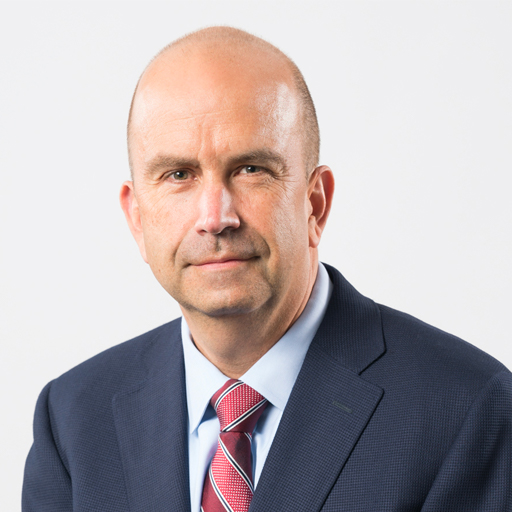



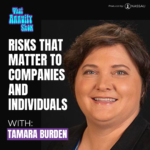
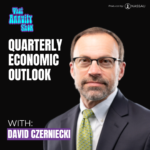
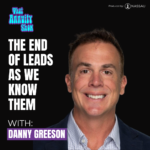
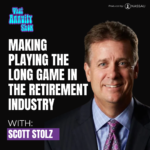
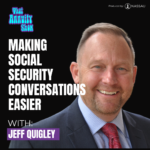
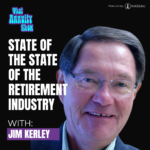
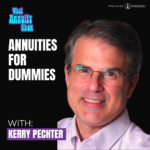
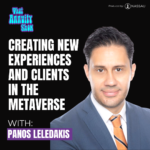

Leave a Reply